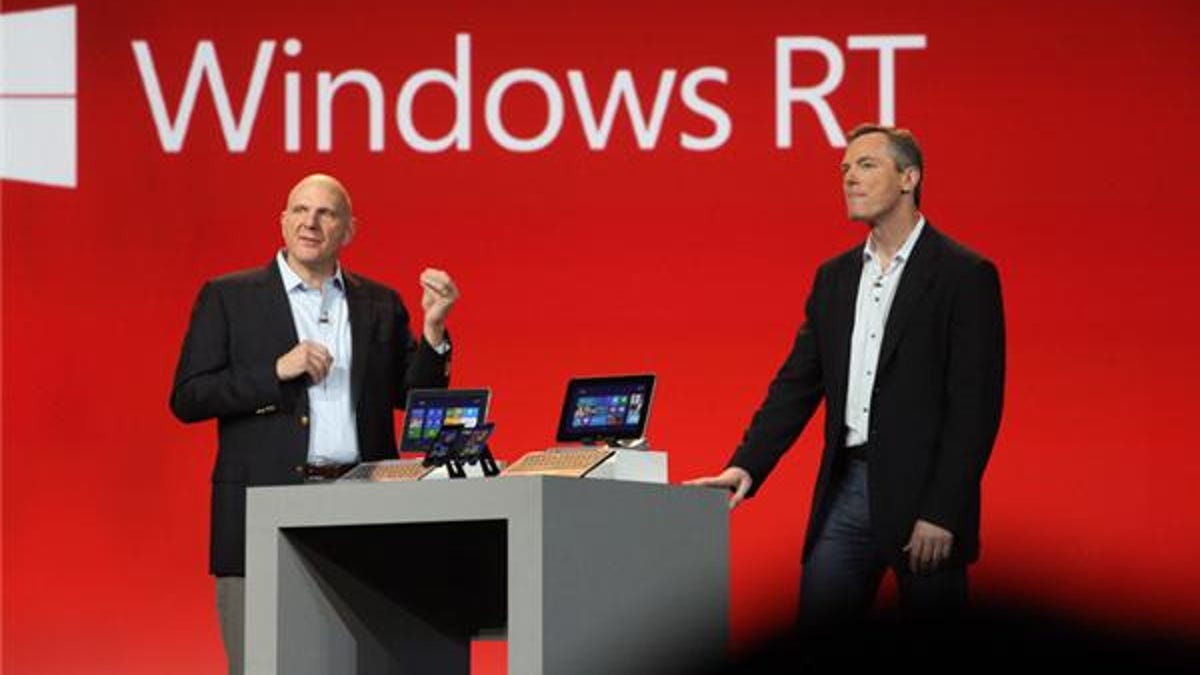Windows RT must work with more chips to take off, ARM CEO says
Warren East -- head of the company that develops chip technology used in nearly all mobile devices -- tells CNET that Microsoft eventually will make Windows RT compatible with more ARM-based processors, but it's unclear when that will happen.

LAS VEGAS -- Microsoft's newest operating system that runs on cell phone chips is off to a slow start, but it's only a matter of time before it gains more traction, the chief executive of chip technology designer ARM Holdings said.
Warren East, speaking today in an interview with CNET at the Consumer Electronics Show in Las Vegas, said that for that to happen, Microsoft needs to make its software, dubbed Windows RT, work with more ARM-based processors. He said it eventually will do so, but it's unclear when that will be.
Currently, Windows RT runs only on Qualcomm and Nvidia chips (it also used to work with Texas Instruments' processors, but that company decided to move away from providing chips for mobile devices). And only four PC makers ultimately built Windows RT products."If Microsoft wants to benefit from the ARM business model and the ARM world, then they'll have to support multiple players," East said. "Otherwise, there's no real advantage for them in working with ARM."
The majority of devices sold in the future will be smartphones and tablets -- products where Windows and the traditional PC vendors like Hewlett-Packard and Dell have struggled. Mobility hasn't been Microsoft's strong suit. And because the x86 processors from Intel and AMD found in Windows-powered laptops and PCs require more power, they haven't been suited to mobile devices.
To overcome that problem, Microsoft created Windows RT to run on chips based on ARM technology -- the same kind of processors that power the vast majority of the world's smartphones and tablets. The new Windows 8 runs on x86 chips.
"We said, 'no, no, you need to work with a few, because we have found over the years it helps to work with a few, or otherwise you end up getting too channeled into the requirements of one customer," he said.
Microsoft has tightly controlled the development process for Windows RT devices, limiting the number of companies the chipmakers could work with, in order to make better products. That's meant that few products have hit the market, and some companies in the initial program ultimately decided to scrap their Windows RT plans. (See CNET's in-depth report on the Windows RT development process).
While Microsoft's tablet footprint would grow with more chipmakers and hardware partners, a broader release could mean a decline in quality.
Microsoft declined to comment.
Update, 2:35 p.m. PT: Adds that Microsoft declined to comment.

